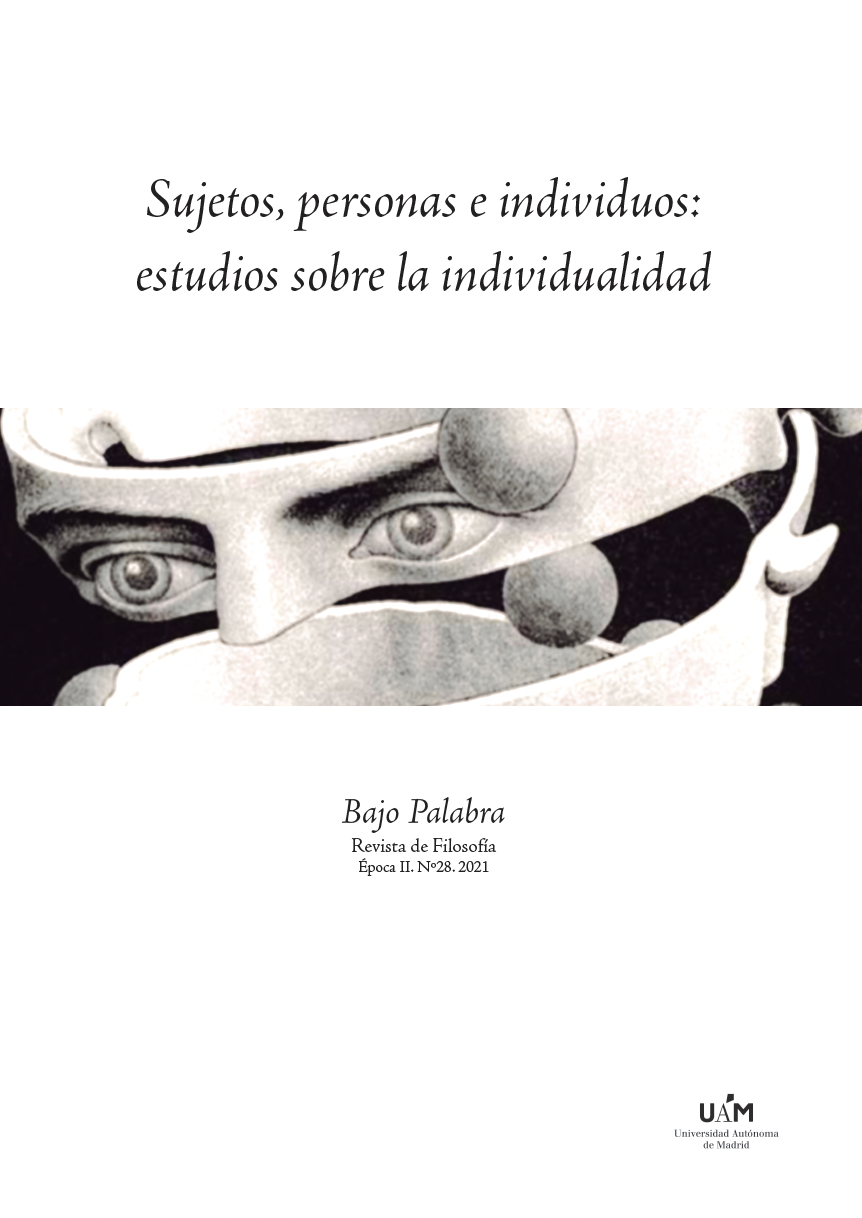Transforming into a physician: discontinuity narratives and autobiographical arguments
Keywords:
Narrative identity, persistence problem, transformation, discontinuity, autobiographical argumentsCopyright (c) 2021 Marcia Villanueva Lozano

This work is licensed under a Creative Commons Attribution 4.0 International License.
Abstract
This paper presents an account on
the persistence problem from a narrative perspective to describe what I call the
transformation problem. The analysis is
based on medical students’ and professionals’ experiences regarding how it was
for them “transforming into a physician”.
By using these empirical data, this paper
explores the discontinuity narratives and
the autobiographical arguments used to
repair such discontinuity.
Downloads
References
Conway, M., Singer, J., y Tahini, A. (2004). The Self and Autobiographical Memory: Correspondence and Coherence. Social Cognition, 22(5), pp. 491-529.
DOI: https://doi.org/10.1521/soco.22.5.491.50768
Dennett, D. (1978) Where am I? In Brainstorms. MIT Press.
Goffman, E. (2006[1963]). Estigma. La identidad deteriorada. Amorrortu.
Habermas, T., y Köber, C. (2015). Autobiographical reasoning in life narratives
buffers the effect of biographical disruptions on the sense of self-continuity. Memory, 23(5), 664-674. DOI: https://doi.org/10.1080/09658211.2014.920885
Lindemann, H. (2001). Damaged identities, narrative repair. Cornell University
Press.
Lindemann, H. (2014). Holding and Letting Go: The Social Practice of Personal
Identities. Oxford Scholarship Online. DOI: https://doi.org/10.1093/acprof:oso/9780199754922.001.0001
Locke, J. (1982[1690]). Ensayo sobre el entendimiento humano. Fondo de Cultura Económica.
Martin, R. (1998). Self-concern: an experiential approach to what matters
in survival. Cambridge University Press. DOI: https://doi.org/10.1017/
CBO9780511663826
Muñoz Corcuera, A. (2021). Persistence Narrativism and the Determinacy of
Personal Identity. Philosophia, 49 (2): 723-739. DOI: https://doi.org/10.1007/
s11406-020-00265-8
Olson. E. (2010). Personal Identity. Stanford Encyclopedia of Philosophy, Winter
Ed. Stanford University. (https://plato.stanford.edu/archives/win2010/entries/identity-personal/).
Parfit, D. (1984) Reasons and Persons. Clarendon Press.
Prebble, S., Addis, D. y Tippet L. (2013) Autobiographical Memory and Sense
of Self. Psychological Bulletin, 139(4), 815-840. DOI: https://doi.org/10.1037/
a0030146
Ribeiro, A., y Gonçalves, M. (2010). Commentary: Innovation and Stability
within the Dialogical Self: The Centrality of Ambivalence. Culture y Psychology,
(1), 116-126. DOI: https://doi.org/10.1177/1354067X09353211
Ricœur, P. (1996). Si? mismo como otro. Siglo XXI.
Serret, E. (2011). Hacia una redefinición de las identidades de género. Géneros,
(9), 71-97.
Schechtman, M. (1996). The constitution of selves. Cornell University Press.
Villanueva, M. (2011). Cacaos. Seminario de Medicina y Salud, Facultad de
Medicina, UNAM.
Villanueva, M. (2019). Somos médicos, no dioses: una etnografía filosófica de la
deshumanización de la medicina (Doctorado en Filosofía de la Ciencia). UNAM.
(Disponible en: https://tesiunam.dgb.unam.mx/F/RD6VVYMT98365E7XLMF4RYMN17UJYLFJVUY14DNI2SBUJNYXYE-07915?func=full-set-set&-
set_number=824442&set_entry=000001&format=999)
Wilkes, K. (1993). Real People: Personal Identity without Thought Experiments. Oxford
UP. DOI: https://doi.org/10.1093/acprof:oso/9780198240808.001.0001
Wilson, A., y Ashplant, T. (1988). Whig history and present-centred history. The
Historical Journal, 31(1), 1-16. DOI: https://doi.org/10.1017/
S0018246X00011961

